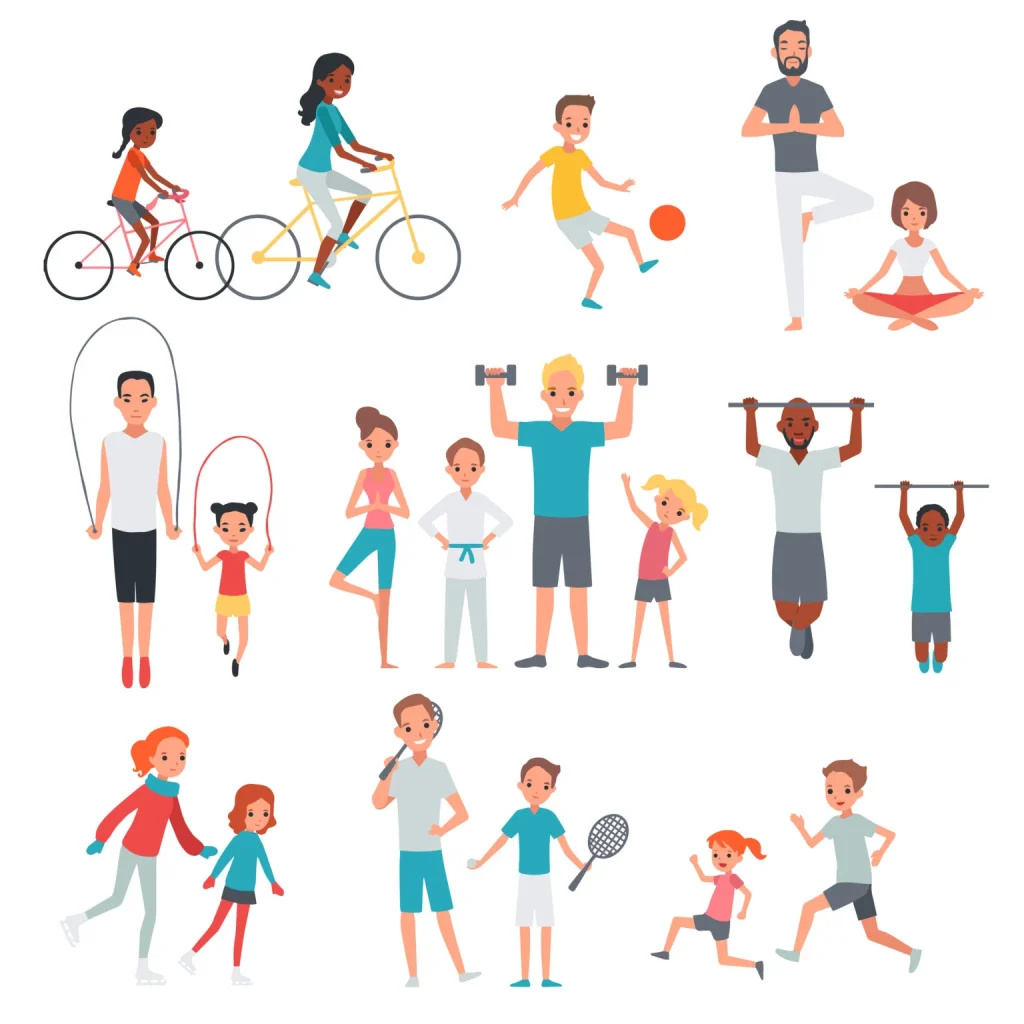Learning Co-curricular skills is as important as learning academics. Co-curricular are the skills developed when a child engages in activities that lie outside the academic curriculum. For example, playing a sport, participating in various competitions or debates, and musical or art activities. These activities are as vital as the academic curriculum as they focus on the intellectual development, social development, emotional development, and moral development of the child.
They allow the children to put themselves out of their comfort zone. It helps in building the personality of the child. Co-curricular skills broaden the horizons of the children allowing them to dig out their deepest potentials. Here are some reasons why every child must focus on learning these skills:-

- Learning Co-curricular skills Fosters Confidence
- Personality Development
- Learning Co-curricular skills Improves Mental Health
- Improves Physical Health
- Exploring New Things
- Learning Co-curricular skills helps in University Applications
- Internship or Job Applications
- Better Creativity with More Productivity
- Learning Co-curricular skills Increases Focus and Motivation
- Time-Management
- CONCLUSION
Learning Co-curricular skills Fosters Confidence
Co-curricular skills are a great way to boost one’s confidence as well as self-esteem. A child’s participation in co-curricular activities provides him exposure to different environments as well as various people. It lowers the fear of meeting people. This prepares the child to acquaint themselves with many people and environments. Co-curricular activities lay the groundwork for future challenges by increasing confidence.
Personality Development
Participating in co-curricular activities sharpens various skills of the child such as decision-making, public speaking, communication skills, leadership skills, social skills, and the never-ending list continues. These skills are a great boon in building confidence which in turn develops one’s personality. Children learn ethical or moral values and shape their behaviour based on these values.
The child develops learning of how important it is to stay disciplined. Participation in these activities also fosters a sense of belongingness among the children. New experiences gained by engaging in these activities shape the opinion of a child. Personality development is the most significant factor as it helps children express themselves in ways that others cannot. Even interviewers look for a good personality more than anything else.
Learning Co-curricular skills Improves Mental Health
Engaging in co-curricular activities helps the child to cope with academic pressure. Sometimes, completing homework or studying for a test can become overwhelming. It causes frustration as well as mental stress. Co-curricular activities help in relieving this stress and make the mind fresh. As a result, the child gets to relax while being productive.
Improves Physical Health
As we all know, exercising or working out is as necessary for our body as anything else; however, it is difficult to make a child work out as it turns out to be monotonous and boring. Co-curricular activities such as playing a sport are a fun way to do this. Playing sports not only does keep your body fit and active but also makes it energetic. It improves the reflexes of the body and builds strength.
Exploring New Things
Usually, children in their youth are unable to find their field of interest or talent. Co-curricular activities provide a vast opportunity to the children in exploring their interests or hunting their talent; they acknowledge what they enjoy and wish to learn. Every child cannot find inspiration by reading books or studying academics.
When children throw themselves into various co-curricular activities, they start developing a better understanding of themselves and their hobbies. This understanding helps them in finding their potentiality in a particular field. Understanding one’s abilities and strengths are essential. It provides a base to set up one’s career. Mastering these strengths and talents can provide the child with numerous career opportunities.
Learning Co-curricular skills helps in University Applications
Acquiring a new skill or mastering in the field of interest gives a child the opportunity to have a preference in universities over those who are not engaged in any co-curricular activities. Grades are important, but on the contrary, the certificates and awards won by participating in such activities are beneficial to the child while filing applications for admission or getting a scholarship. Sports quota is an example.
Internship or Job Applications
Many schools and universities provide internships to their students. Co-curricular skills come out to be necessary here as students are selected based on these skills. These internships look for the experience of the students in a particular field. Mastery in any of such skills gives them a chance to get selected in paid internships. Even in job applications and resumes, co-curricular skills are a must as they increase the chances of getting hired and having a raised pay.
Better Creativity with More Productivity
Creative and productive minds lead to the road to success. Creativity means thinking of new and original ideas. Co-curricular skills develop one’s mind making the person act more creatively and efficiently. In addition to this, they polish the logical thinking of the children. It also allows children to look at situations with a new and different perspective.
Taking breaks from the academic curriculum is crucial; engaging in co-curricular activities is a productive way of reclining children from the academic curriculum as they learn something or the other in their free time.
Learning Co-curricular skills Increases Focus and Motivation
Children who engage in co-curricular activities find it easy to stay motivated and focused for hours. Researches show that such students are more likely to excel academically than those who do not participate in such activities. Co-curricular skills enhance mental functioning and help the mind to stay healthy and refreshed.
It improves the concentration of the students by which they stay more motivated to perform better in academics. Children are more likely to remain enthusiastic with regular participation in co-curricular activities.
Time-Management
Co-curricular activities are a great way to make the children learn the importance of time management. Balancing the academic curricular activities such as study hours, doing homework, etc., with the co-curricular activities helps children in managing their time accordingly. It helps in sticking to a consistent and healthy schedule. Time management prepares the child for the upcoming future endeavours.
CONCLUSION
Although academic curricular activities are necessary, acquiring co-curricular skills is equally needed. These skills provide more chances for learning. Where academic skills are the key to intellectual development, co-curricular skills are significant to develop various other aspects of personality. To conclude, both curricular and co-curricular skills are integrated and inculcate the ‘all-rounder’ factor in a child.
Share with your friends






